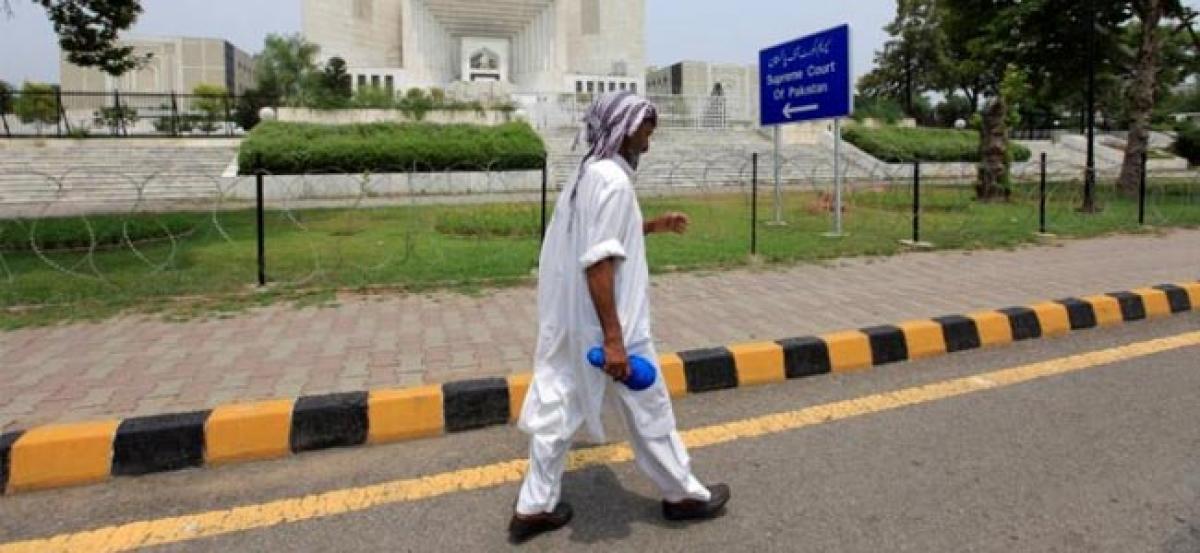Live
- A stretch of 253.55-km-long roads to be developed in Vizag
- No place for religious-based reservations in Constitution: Kishan
- Man gets lifer for murder, rape of granddaughter
- Health assistants play a key role in protecting public health
- Assessing How Sperm DNA Damage Affects IVF Pregnancy Risks
- GMC to act against tax defaulters
- Cantt MLA thanks govt for infra devpt funds
- Officials told to maintain quality in road works
- APSSDC inks pact with Pearson
- Hyderabad Metro receives IGBC Green Existing MRTS Platinum certification
Just In

Pakistan\'s Supreme Court on Monday upheld verdicts and death sentences in the cases of 16 civilians convicted of terrorism-related offences by military courts, the first time the highest court has ruled on the legality of cases tried by the military.
Pakistan's Supreme Court on Monday upheld verdicts and death sentences in the cases of 16 civilians convicted of terrorism-related offences by military courts, the first time the highest court has ruled on the legality of cases tried by the military.
A five-member bench ruled that the appellants had not proved the military violated their constitutional rights or failed to follow procedure, in a blow to some activists who contend the courts routinely violate people's rights.
Pakistan's government empowered military courts to try civilian terrorism suspects in January 2015, following an attack by Pakistani Taliban militants on a school in Peshawar that killed more than 130 pupils.
The military has so far convicted 104 civilians in the secret tribunals. Of those, 100 have been sentenced to death, and four to life imprisonment. All but six are said by the military to have confessed.
Those whose appeals were dismissed on Monday included nine members of the Tehreek-e-Taliban Pakistan (TTP) and two al-Qaeda members, according to Pakistan's military. Two convicts are said to have been involved in the Peshawar school killings.
Pakistan has been battling the TTP, an umbrella organisation of militant groups fighting to impose strict Islamic law, and its allies including al-Qaeda since 2007.
Lawyers for all 16 convicts contended their clients had been tried in secret, without access to legal counsel of their choice, and that their confessions had been recorded illegally. They also claimed they were denied access to military court records when preparing their appeals.
The complaints echoed those made by lawyers and families of those convicted by the courts to Reuters. Two families and one lawyer said they had been threatened after filing appeals. Several told Reuters that confessions were "coerced" by the military.
Sajid Ilyas Bhatti, the deputy attorney general representing the government, denied the appellants' claims, saying they had been accorded their rights.
He argued that military court proceedings were "immune from challenge on the ground of any alleged violation of the fundamental rights".
In its 182-page judgment, the court concluded that the appellants failed to prove wrongdoing on the part of the military authorities.

© 2024 Hyderabad Media House Limited/The Hans India. All rights reserved. Powered by hocalwire.com







